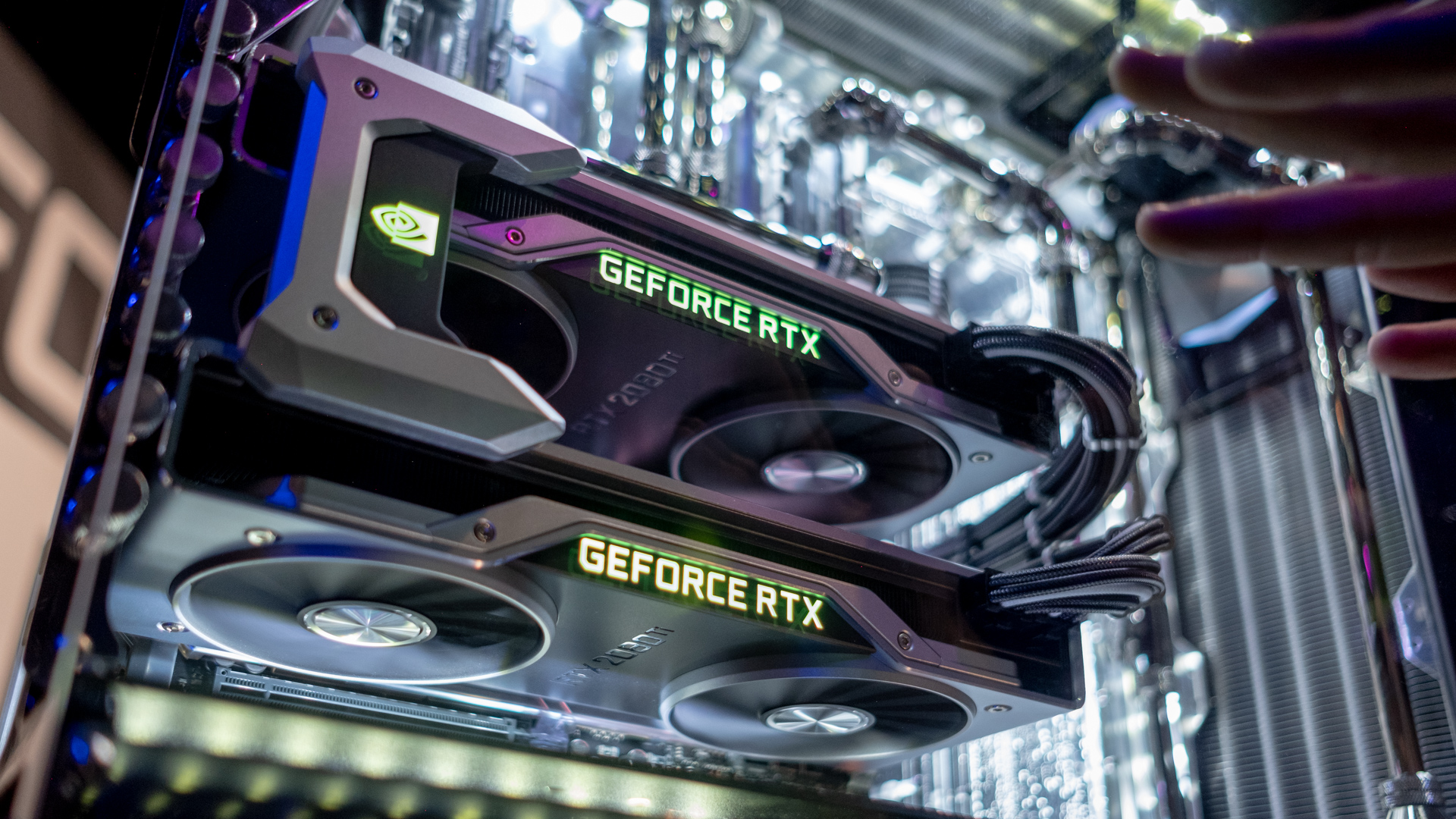Nvidia RTX 3080 Ti could be 40% faster than RTX 2080 Ti and may launch this year
New Ampere rumors emerge

If new rumors are to be believed, the Nvidia GeForce RTX 3080 Ti could launch by the end of 2020, and will be up to 40% faster than its predecessor, the RTX 2080 Ti.
The new rumors come courtesy of KittyCorgi on Twitter. Now, bear in mind that this is a relatively new Twitter account with very few followers, so take this all with a pinch of salt, but the account is posting what looks like detailed information on Nvidia’s upcoming Ampere series of graphics cards.
- Nvidia’s next-gen GeForce graphics cards could launch at GTC and be on sale in April
- These are the best Nvidia GPUs of 2020
- A massive Nvidia graphics card just leaked: is this the Nvidia GeForce RTX 3080?
According to the tweets, which you can see below, the Ampere series of GPUs will feature five different graphics cards, and all will offer ray tracing capabilities for advanced, life-like, lighting effects in games, so even the more affordable models of Nvidia’s next generation graphics cards will be able to handle ray tracing.
They will all apparently use Samsung’s 10nm process as well.
1 Surprisingly, the next gen chip will be based on Samsung 10nm node 2 Not very solid about what GA102 really got, may struggle to be 40% above 2080ti, but bound to be under that number if compared against full bore TU102 3 SLi will be available to GA102 ONLY 4 RTX for everyone pic.twitter.com/b5YAKmOmgfMarch 11, 2020
What GPUs is Nvidia cooking up?
According to the leak, there will be an Nvidia GA102 GPU, which will be the flagship Ampere followup to the TU102 GPU which is found in the RTX Titan and RTX 2080 Ti graphics cards, so the assumption is that this would power the next-generation Titan and GeForce RTX 3080 Ti (or whatever it will be called).
The leak suggests this will come with 5376 CUDA cores, an increase of 16% on the TU102 in the RTX Titan, and would support up to 12GB of memory with a 384-bit bus interface.
There’s speculation that an Ampere Titan card, which would be the best-of-the-best consumer graphics card, as Titan cards usually are, would use the full amount of CUDA cores, while an RTX 3080 Ti would use fewer.
Get daily insight, inspiration and deals in your inbox
Sign up for breaking news, reviews, opinion, top tech deals, and more.
The leaker also suggests that the GA102 GPU will be up to 40% faster than the RTX 2080 Ti.
Next up is the GA103 GPU, which would apparently power the Nvidia GeForce RTX 3080, with 3840 CUDA cores, a big increase over the RTX 2080’s 3072 CUDA cores, and 320-bit bus interface, which could mean it comes with 10GB or 20GB of GDDR6 memory.
Even if it goes for the lesser 10GB amount, that would still be 2GB more than the RTX 2080, and could lead to a performance boost of about 10% compared with the RTX 2080.
The leak also talks about the GA104, which could go into an RTX 3070, and what’s interesting about this is that if the RTX 3070 does exist, it could offer 95% the performance of the RTX 2080 Ti. The RTX 3070 would likely be a much cheaper card as well – as Wccftech point out, this could lead to a $500 graphics card in the future offering the performance of a current $1,200 card. If true, that could be very exciting.
There are also apparently going to be GA106 and GA107 GPUs, which will be aimed at mainstream and budget markets, and as we mentioned above, they will still offer ray tracing capabilities.
Again, we should stress that these are all unconfirmed rumors, but they certainly are exciting. Although Nvidia has cancelled its GTC 2020 keynote, which was where many of us expected to hear more about its next gen GPU plans, including perhaps an unveiling of Ampere, we should still get news from Nvidia on March 24, which will hopefully include more information about the new graphics cards it will release this year.
- These are the best graphics cards you can currently buy

Matt is TechRadar's Managing Editor for Core Tech, looking after computing and mobile technology. Having written for a number of publications such as PC Plus, PC Format, T3 and Linux Format, there's no aspect of technology that Matt isn't passionate about, especially computing and PC gaming. He’s personally reviewed and used most of the laptops in our best laptops guide - and since joining TechRadar in 2014, he's reviewed over 250 laptops and computing accessories personally.